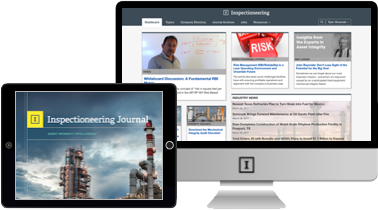In August of 1993, the hydrocarbon process industry once again experienced a catastrophic loss when a major coker unit fire occurred in Louisiana. The cause of that incident was not unlike many others that have occurred over the years throughout the industry.: inadvertent substitution of construction materials (CM). In that particular case a carbon steel elbow in a 5 Cr-1/2 Mo piping system ruptured due to hot sulfide corrosion. All other components in the system were made of the proper CM and were exhibiting low, predictable corrosion rates. One result of that incident is that the next three cokers built in the industry contained a requirement for 100% PMI on critical allow components.
Documented experience indicates that inadvertent CM substitution errors may be occurring in approximately 1-3% of all alloy components being installed. Such components include pipes, fittings, flanges, nipples, valves, and even individual welds. A typical refining process unit with a significant amount of alloy piping systems might contain 4,000-5,000 alloy components. A highly alloyed chemical process unit might have 4-5 times that amount.
In high-risk services, the industry recognizes that CM substitution errors must be prevented in order to minimize the risk of catastrophic losses. As such, many companies are taking steps to improve their specifications, controls and procedures to validate that specified alloy components are actually installed. These efforts are aimed at new construction, maintenance activities, and existing installations. Several companies are now requiring that suppliers and fabricators of alloy piping components provide up to 100% PMI verification of critical alloy components. At a minimum, suppliers should be forewarned not to substitute any CM without purchaser approval even if they believe the substitution would be an upgrade.
Recently the API Committee on Refining Equipment approved the formation of a PMI task group within the Subcommittee on Inspection. The first meeting of this task group was in May 1995. At that meeting, members outlined and began drafting an industry recommended practice on alloy CM control and verification. It is expected that it will take approximately 2.5 more years to generate, approve and publish the standard (API RP 578), utilizing the API/ANSI standards process; so I expect the recommended practice to be published and available in late 1997.

















Comments and Discussion
There are no comments yet.
Add a Comment
Please log in or register to participate in comments and discussions.